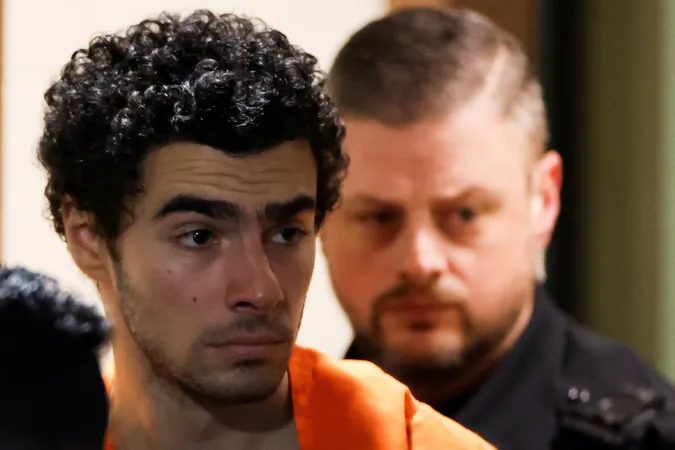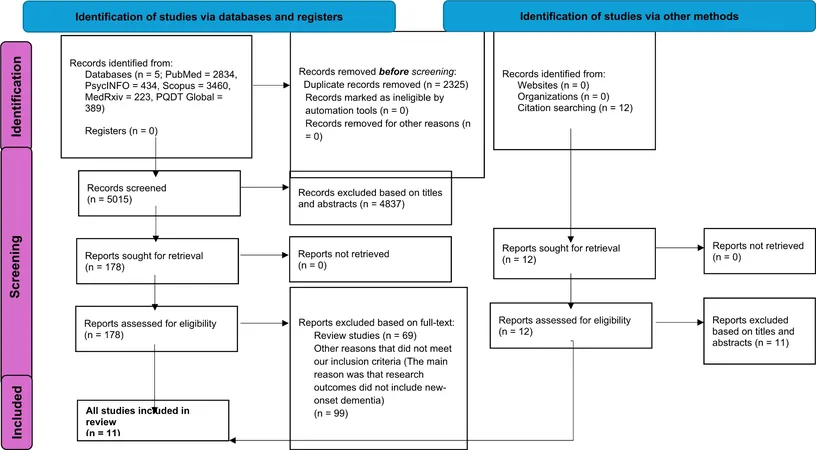
Shocking Murder of UnitedHealth Executive Exposes Deep Frustrations Over U.S. Healthcare System
2024-12-13
Author: Michael
Shocking Murder of UnitedHealth Executive Exposes Deep Frustrations Over U.S. Healthcare System
In a harrowing incident that has sent shockwaves through the healthcare community, UnitedHealth Group executive Brian Thompson was tragically killed in a shooting outside a Manhattan hotel, just days before an important industry conference. The primary suspect, Ivy League-educated Luigi Mangione, was apprehended after a five-day manhunt and charged with murder on December 9. Notably, UnitedHealth has confirmed that Mangione was not a customer of the health insurance company.
The shocking nature of this crime has ignited a fierce public outcry, shedding light on the widespread frustrations many Americans face regarding the healthcare system. UnitedHealth's CEO, Andrew Witty, expressed deep sorrow in a New York Times opinion piece, stating, "No one would design a system like the one we have. And no one did. It’s a patchwork built over decades." This sentiment appears to resonate with countless individuals who feel overwhelmed by the complexities and failures of health coverage in the U.S.
Witty's comments come at a time when ongoing issues within the healthcare sector are becoming increasingly visible. Recent statistics reveal that patients are facing a higher likelihood of claims being denied, soaring premium costs, and unexpected out-of-pocket expenses. These challenges have contributed to a growing disdain for a system perceived as malfunctioning and unjust.
In his piece, Witty also acknowledged the personal nature of healthcare and the complicated web of decisions surrounding coverage. He stated, "We share some of the responsibility for that,” urging collective action among insurers, employers, and government bodies to improve transparency and understanding of insurance policies.
Moreover, an internal New York City Police report has surfaced, revealing that Mangione viewed Thompson’s murder as a legitimate response to perceived corruption within the healthcare industry—a reflection of the anger and desperation felt by many who navigate this problematic system.
As the fallout from this tragic event continues, the call for vital reforms in the U.S. healthcare landscape has never been more critical. Public and private sectors alike are pushed to engage in deep dialogues about the ethical and operational dimensions of healthcare provision, especially in a time when trust in the system is severely lacking. With mounting pressure for clarity and fairness, the fate of healthcare reform hangs in a delicate balance. Will this dark incident finally trigger meaningful changes in an industry long plagued by turmoil? Only time will tell.









 Brasil (PT)
Brasil (PT)
 Canada (EN)
Canada (EN)
 Chile (ES)
Chile (ES)
 España (ES)
España (ES)
 France (FR)
France (FR)
 Hong Kong (EN)
Hong Kong (EN)
 Italia (IT)
Italia (IT)
 日本 (JA)
日本 (JA)
 Magyarország (HU)
Magyarország (HU)
 Norge (NO)
Norge (NO)
 Polska (PL)
Polska (PL)
 Schweiz (DE)
Schweiz (DE)
 Singapore (EN)
Singapore (EN)
 Sverige (SV)
Sverige (SV)
 Suomi (FI)
Suomi (FI)
 Türkiye (TR)
Türkiye (TR)